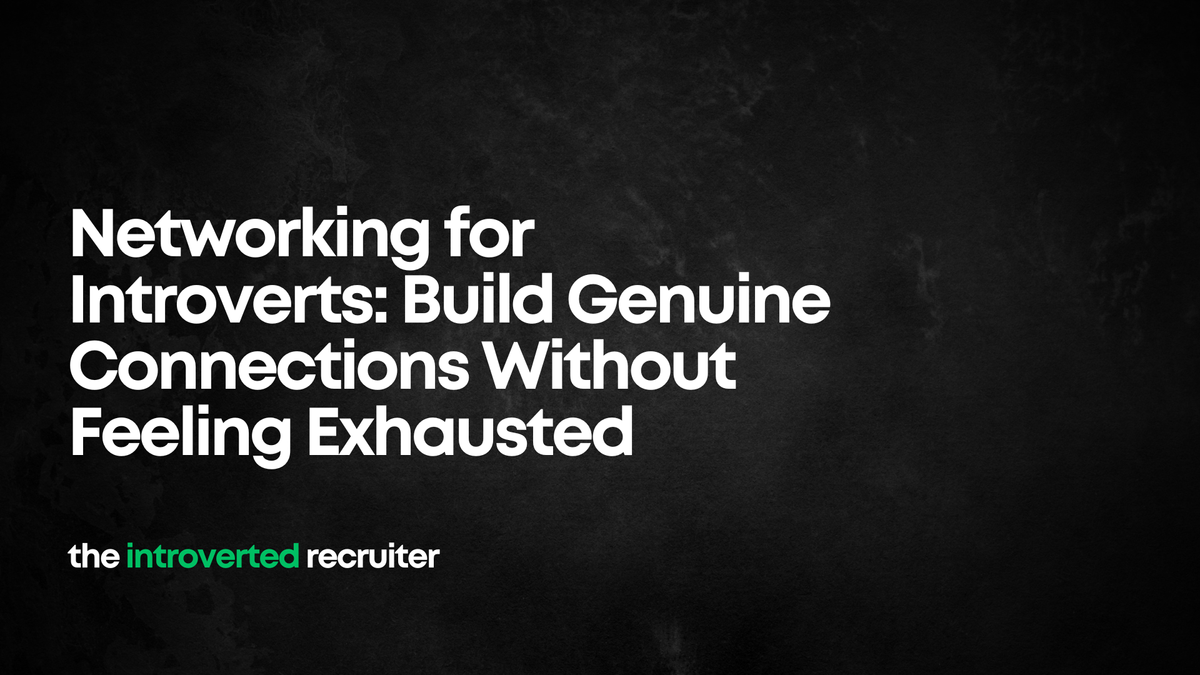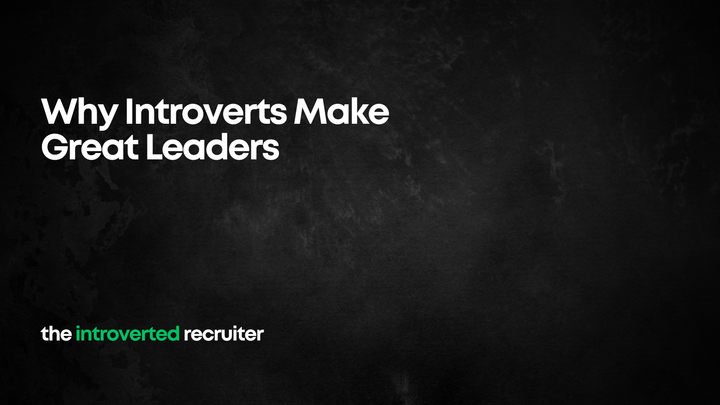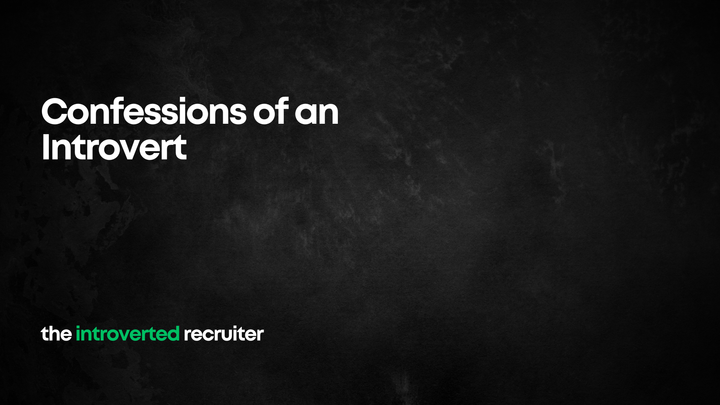Networking for Introverts: Build Genuine Connections Without Feeling Exhausted

Look, I get it—networking sucks, especially if you’re an introvert. The idea of walking into a room full of strangers and making small talk might be your worst nightmare. But here’s the thing: networking doesn’t have to be about forcing yourself to do things that feel unnatural or uncomfortable. It’s not about collecting business cards or shaking as many hands as possible. It’s about making real connections—and you don’t need to be an extrovert to do that.
In fact, introverts are often better at forming deeper, more genuine relationships, which is the whole point of networking anyway. So, let’s break down how you can network in a way that works for you, without feeling like you need a week to recover afterward.
1. Redefine What Networking Is
First off, forget what you think networking is supposed to be. If you’re imagining a room full of people awkwardly making small talk and trading business cards, you’re not wrong—but you also don’t have to do that. Networking is about building relationships over time, not cramming as many conversations as possible into a two-hour event.
As an introvert, you’re probably great at listening and connecting one-on-one. That’s a strength. Use it. Focus on quality over quantity. You don’t need to “work the room.” If you leave an event with one or two solid connections, that’s a win.
2. Start Online—It’s Less Intense
One of the biggest advantages for introverts today? Networking doesn’t have to happen face-to-face anymore. LinkedIn and other social platforms make it easier to connect with people on your terms—without all the social awkwardness of in-person events.
Start by engaging with content in your industry. Comment on posts, share your insights, and connect with people you find interesting. Send a personalized message that’s simple and to the point—something like, “Hey, I saw your post on [topic] and found it really insightful. I’d love to connect and hear more about your work in [industry].”
That’s it. You don’t need to dive into a long-winded conversation right away. Keep it light and easy.
3. Prepare (So You Don’t Feel Like a Deer in the Headlights)
In-person events can still be valuable, and yes, sometimes necessary. But that doesn’t mean you have to just dive in and hope for the best. Prepare a few conversation starters ahead of time so you don’t freeze up when someone asks, “So, what do you do?”
Here are some go-to openers that keep the conversation focused on the other person:
- “What’s been your biggest project recently?”
- “I noticed you work in [industry]. What are the trends you’re seeing right now?”
- “How did you get into [field]?”
These questions do two things: they get the other person talking (which gives you a break) and they help build a real conversation, not just empty chit-chat.
4. Skip the Crowds, Focus on One-on-One
Large networking events can be exhausting, especially when you’re trying to talk to everyone. So don’t. Instead, aim for one or two meaningful conversations. If you make a solid connection with someone, follow up afterward and suggest grabbing a coffee or having a one-on-one chat. This is where introverts excel—deep connections over shallow interactions.
And here’s a tip: When you do follow up, don’t just say, “Nice to meet you.” Make it personal. Mention something specific you talked about, or even better, offer something of value. Maybe it’s an article related to your conversation or an introduction to someone who could be helpful to them. That kind of follow-up shows you were genuinely engaged, not just ticking boxes.
5. Play to Your Strengths—Listen More, Talk Less
Here’s a secret about networking: You don’t have to be the most talkative person in the room to make an impact. In fact, being a good listener is one of the most underrated networking skills. While everyone else is trying to make their pitch, you can stand out by actually listening to what people are saying.
Ask thoughtful questions, be present in the conversation, and remember the details. People will remember you for making them feel heard, which is far more valuable than being the loudest person in the room.
6. Set Boundaries to Protect Your Energy
Here’s the deal: networking doesn’t mean sacrificing your sanity. If you’re an introvert, it’s important to set boundaries so you don’t burn out. This might mean limiting how many events you attend, or how long you stay at them.
Give yourself permission to take breaks. Step outside for some air or leave early if you’re drained. It’s about what works best for you. You don’t have to play by anyone else’s rules. If you’re exhausted, you won’t be showing up as your best self, and that defeats the purpose.
7. Don’t Overthink It—Follow Up with Value
A quick word on follow-ups: don’t overthink them. You don’t need to write a formal email or over-analyse the conversation. Keep it simple. Send a message thanking them for their time and include something of value—maybe a relevant article or an introduction. It shows you’re not just following up because you think you “should,” but because you genuinely want to continue the conversation.
Final Thoughts: Network on Your Terms
Networking doesn’t have to be an energy-draining, anxiety-inducing task for introverts. When you focus on building genuine connections rather than just collecting contacts, it becomes way more manageable—and dare I say, even enjoyable.
So forget the outdated idea that you need to be an extrovert to be good at networking. You don’t. You just need to play to your strengths, set boundaries, and make sure your networking feels authentic. That’s how you’ll create relationships that actually matter.
Newsletter
Sign up for my free newsletter on SubStack for all the latest content straight into your inbox.
Follow Me
Find me on LinkedIn , TikTok , YouTube or Instagram where I share lot’s of practical no nonsense advice.
My Ebooks
My Ultimate Guide To Job Searching Ebook provides quick and practical tips you can use to supercharge your job search. Comes complete with numerous templates and 180 common interview questions. Get your copy here:
Get The Ultimate Guide To Job Searching & Goodies
The No-Nonsense Job Search & Career Playbook is your straight-talking guide to navigating every stage of the job search process and thriving in your career. Packed with practical advice, real-world strategies, and actionable steps, this book cuts through the fluff to give you exactly what you need to land the job you want—and succeed long-term. Get your copy here:
The No-Nonsense Job Search & Career Playbook



